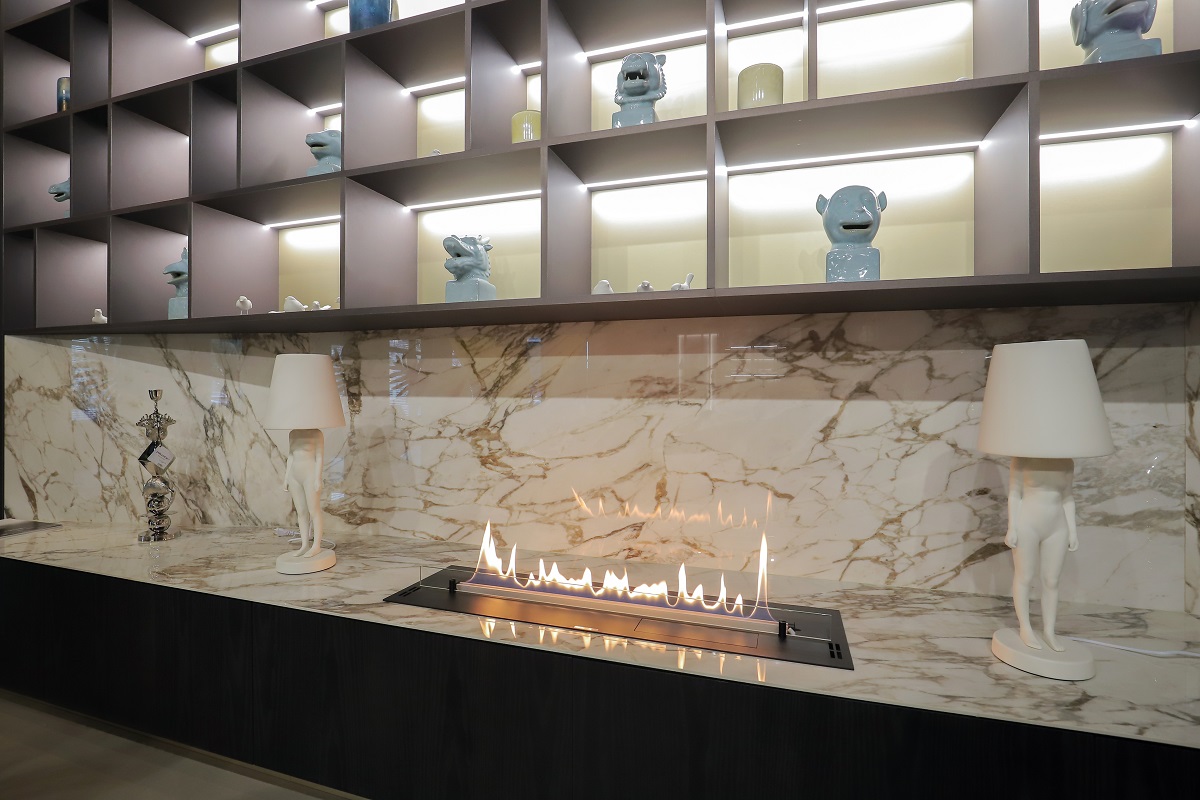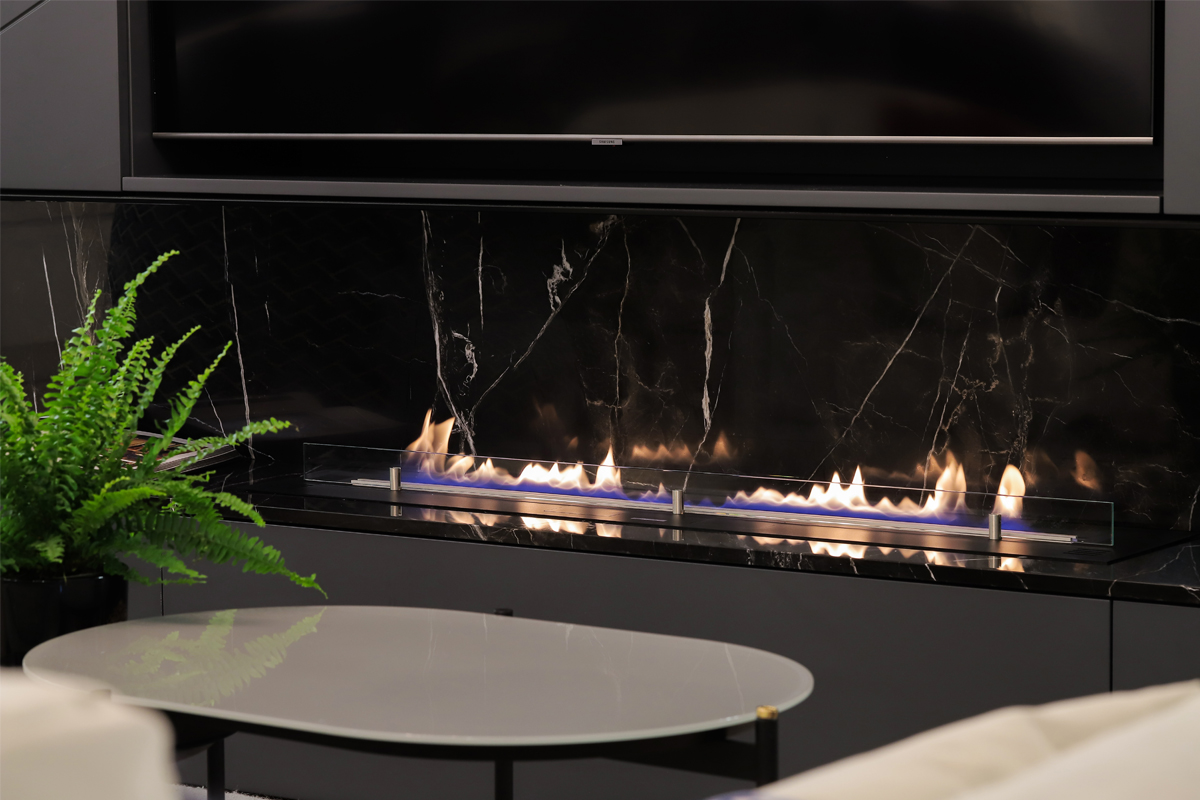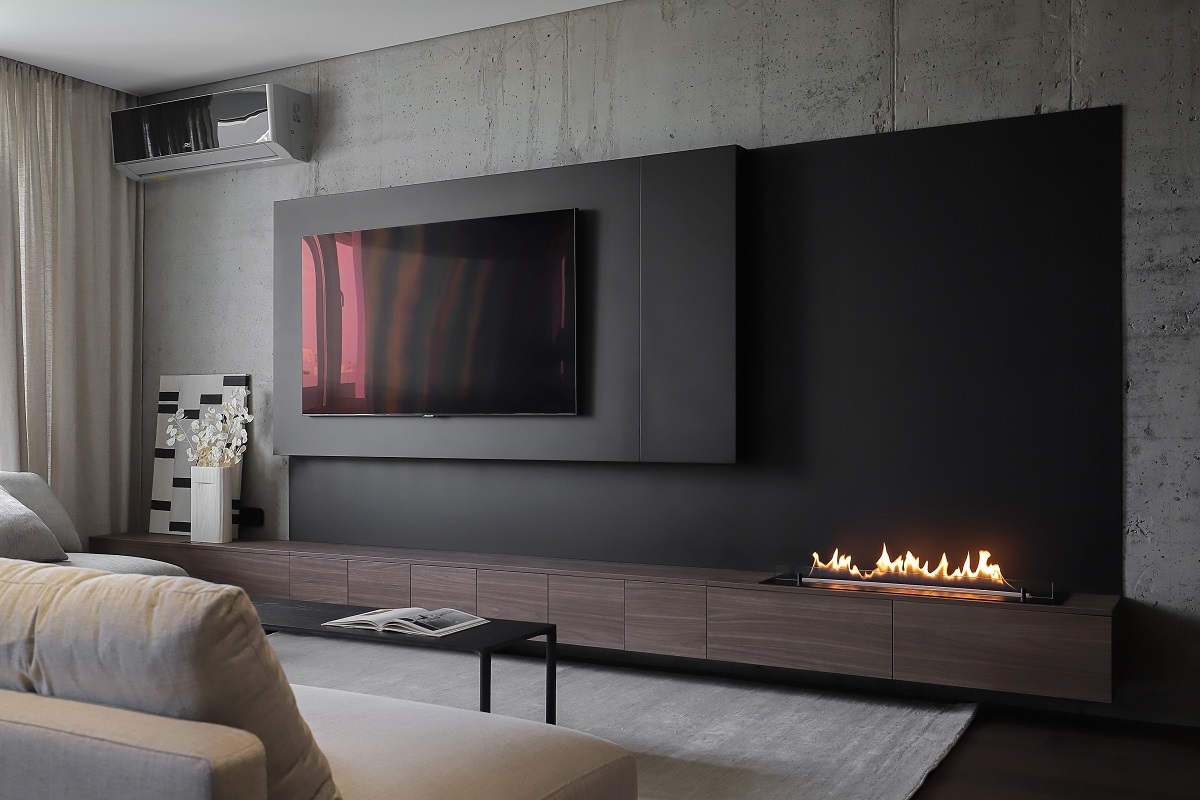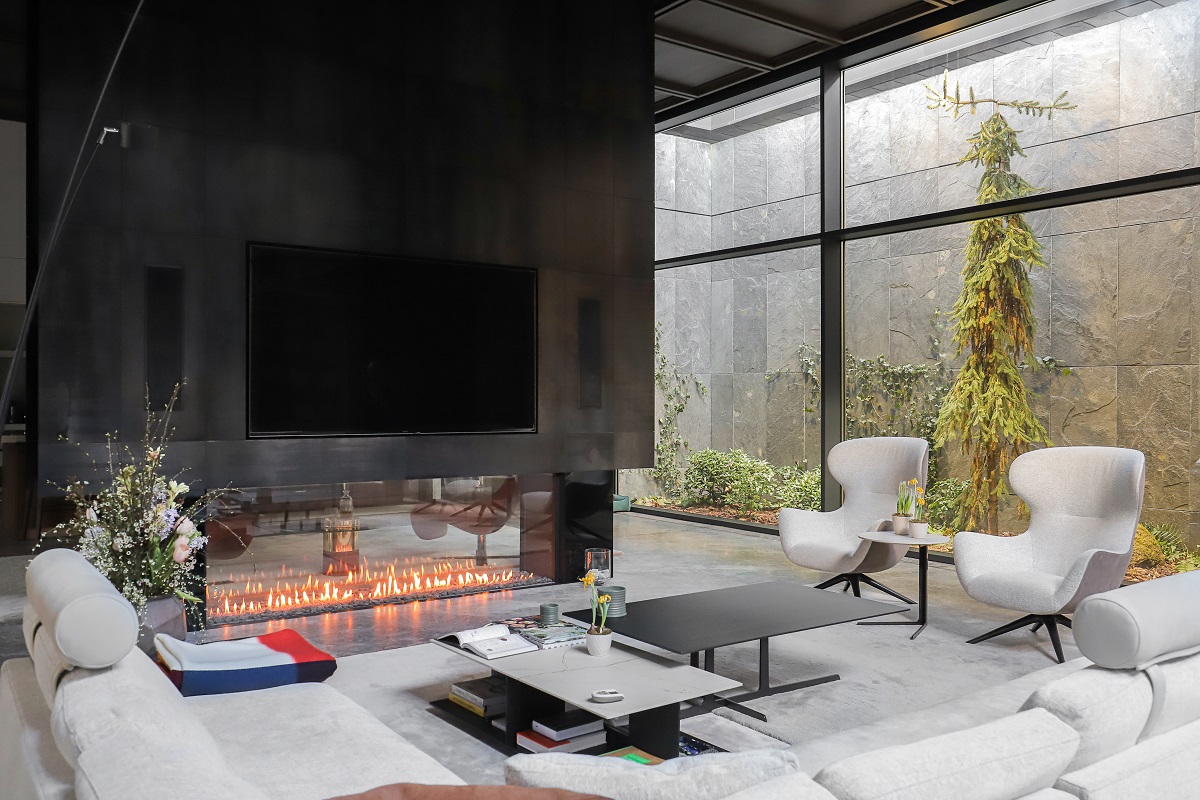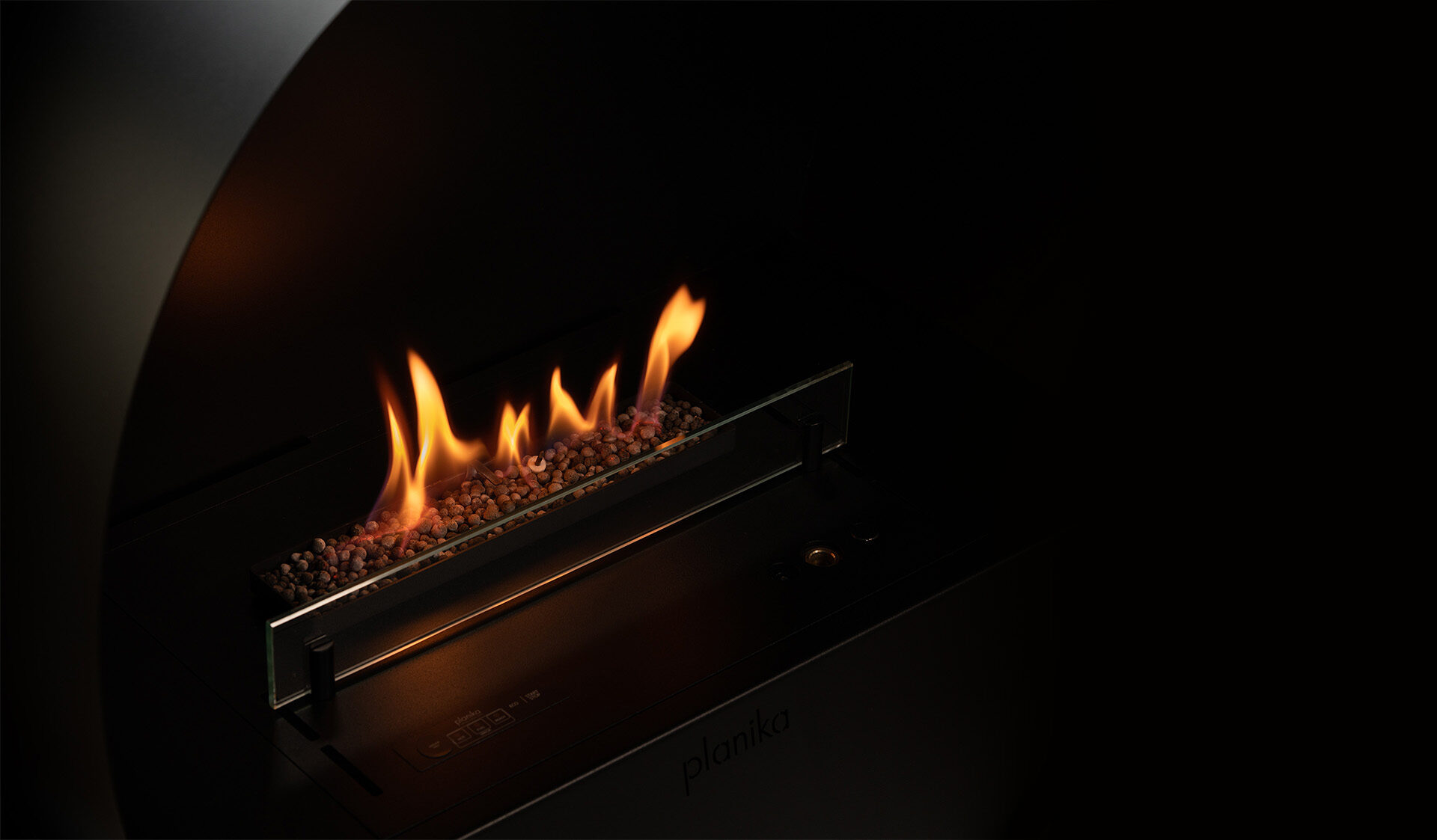
Do ethanol fireplaces give off heat?
Although a new fireplace with BEV (Burning Ethanol Vapours) was not intended to become a heating solution for buildings, it does effectively raise the temperature in the rooms where it is used. In case of Planika automatic ethanol fireplaces, the flames come from the combustion of pure bioethanol vapour generated by the BEV (Burning Ethanol Vapours) technology. This process is a chemical transformation that produces water vapour, a small amount of carbon dioxide and a fire and a heat. BEV fireplaces feature new, revolutionary fireplace technology that completely changed the approach to fireplace design. Interior designers, architects and DIY remodelers are attracted to these flueless devices due to their limitless design potential.

What influences the heat output of BEV fireplaces?
There are three main factors that influence the heat output of BEV fireplaces:
- Type of used model (burner type);
- Length of fire line;
- Flame level.
BEV fireplaces come as fireplace inserts to be built into a wall or a piece of furniture, but there are also freestanding and wall-hanging models. Even though all automatic fireplaces by Planika feature BEV technology, there are a few differences in the construction and look of the burner in different models that may influence the heat efficiency.
In the following article, we will present the thermal efficiency of selected models of Planika ethanol fireplaces.
Stand-alone fireplaces produce between 2.5 kW and 7 kW. Their main advantage is that they can be used practically as soon as they are unpacked. No installation is required and they allow a free choice as to their location. You can move it every now and then and use it where you exactly need it.
Fireplace inserts with BEV technology, thanks to their patented technology, may come in bigger sizes (in comparison to manual bio fireplaces),. Their burners can reach a length of even 2,5-meter. The heat output of BEV ethanol inserts starts from 2,5 kW and reaches up to 22 kW in the case of the longest Planika model – FLA3 2490.
Additionally, the amount of generated heat can be adjusted by changing the height of the fire. To lower or increase the flame size, you can use the mobile app or remote control. The microprocessor gives the signal to produce fewer vapours and flames go down, reducing fuel consumption and heat emission.
HOW MUCH HEAT DO GAS AND WOOD-BURNING FIREPLACES PRODUCE?
Wood-burning fireplaces are one of the most popular heating devices on the market all around the world. But how do they compare to the BEV fireplaces by Planika?
Wood-burning fireplaces generally emit between 12 – 20 kW. A typical gas unit produces 8-14 kW.
By choosing FLA3 fireplace with BEV technology and a 1.2 meter-long burner, you are opting for a 9,4 kW heat source.
The popular wood-burning stoves give out heat between 7 and 10 kW.
In comparison, the Scandi ethanol fireplace from Planika produces 4.1 kW of heat.
WHAT IS THE HEAT EFFICIENCY OF AUTOMATIC FIREPLACES WITH BEV TECHNOLOGY COMPARED TO WOOD-BURING FIREPLACES?
BEV fireplaces are 100% thermally efficient, as there is no chimney through which the heat escapes. The older types of wood-burning fireplaces gave off a large proportion of their heat through the flue, while newer types show a thermal efficiency of around 70-80%.

WILL ETHANOL FIREPLACES WITH BEV TECHNOLOGY WARM UP THE ROOM?
It is important to remember that BEV fireplaces are not used as a replacement for permanent heating, such as underfloor heating, but it can be a supplementary heat source with which you can quickly raise the temperature of a particular room.
Whether a fireplace will sufficiently heat the room depends mainly on two factors:
- the size of the room,
- and the size of the burner.
The room temperature can additionally be affected by the number of people in the room and also by other electronic equipment operating in the room.
In order to be quite precise, we carried out tests and measured how much the temperature would increase in a 50m2 room when a BEV ethanol fireplace operates in it.
TEST 1 – FLA3 990
Before switching on the FLA3 990 fireplace (7kW), the temperature in the 50 m2 dining room was exactly 21.9‘C. The level of flame was set to level 4. 60 minutes after turning on the ethanol fireplace, the room temperature increased by 4.6‘C resulting in a room temperature of 26.5’C.
TEST 2 – BUBBLE WALL&FLOOR
For another test, we switched on a free-standing Bubble fireplace (2,5 kW), in the flat which had a temperature of 21.2’C. After one hour the temperature elevated to 23’C and after another 10 minutes to 23.2’C. So in just over an hour, the living room was warmed by 2 degrees.
Our tests have shown that ethanol fireplaces produce enough heat to effectively heat up the room in which they are located by a few degrees.


